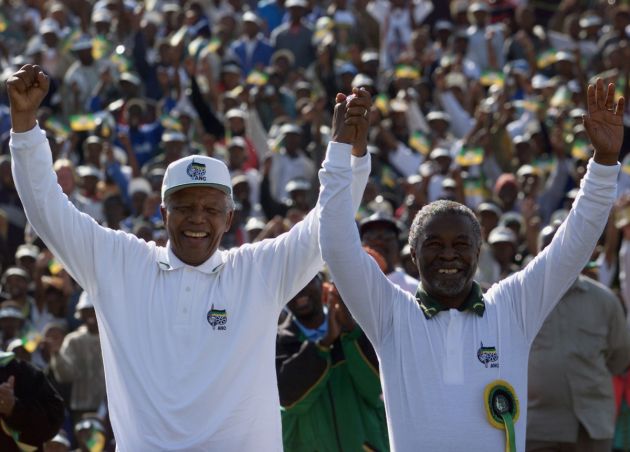Former South African president Mbeki urges churches to raise voices

Former South African president Thabo Mbeki has criticized the country's churches for not playing a greater role since the end of apartheid and has hit out at churches all round Africa for not speaking louder on issues facing the continent.
Mbeki followed Nelson Mandela as the second post-apartheid leader serving as president from 1999-2008.
He criticised South African churches for "demobilising" after the end of apartheid and called on them to become more active in responding to the challenges faced by society.
Mbeki was addressing the three-yearly Synod of the Anglican Church of Southern Africa, held in Benoni, South Africa on October 3. It consists of churches from Angola, Lesotho, Swaziland, Mozambique, Namibia, South Africa and the island of St. Helena (a South Atlantic Island).
Before his address, he lit a candle in memory of a lay representative to the Synod, James Thomas, who was killed in the al-Shabaab attack on Westgate Mall in Nairobi on September 21.
He also joined in lighting two further candles with the Archbishop of Cape Town, Thabo Makgoba, who also offered prayers, for Nelson Mandela's continuing well-being, and for the continent of Africa in which Mbeki has been involved in various mediation and diplomatic initiatives.
Mbeki said that during apartheid, "one of our principal fighters for liberation here was the Church." But since liberation, "one of the things that has happened here is that the Church has become demobilised
"It has distanced itself in a way from responding as it used to respond to national challenges and has disappeared somewhere over the horizon.
"My sense is that the voice of the church is not as strong now as it used to be at a time when we need that strong voice."
He said that not only churches but civil society had tended to say in effect: "We have now elected our government... and the government must deliver."
Mbeki noted, "The leadership of the church is sorely missed."
The material position of many of South Africa's poorest people has not improved in post-apartheid South Africa despite the rise of a substantial black middle class and political elite, which some church leaders have criticized.
DESMOND TUTU
During his presidency in 2004 the Archbishop Emeritus of Cape Town, Desmond Tutu, one of South Africa's best known Anglicans criticised Mbeki for surrounding himself with "yes-men", not doing enough to improve the position of the poor and for promoting economic policies that only benefited a small black elite.
Noble Peace Prize laureate Tutu also accused Mbeki and the ANC of suppressing public debate and lambasted the then South African president for having a policy of denial on the HIV and AIDS pandemic facing South Africa.
Mbeki also criticized the silence of churches on the rest of the continent, he asked what the continent's principal ecumenical body, the Nairobi-based All Africa Conference of Churches, was doing.
"I don't know where it is. It was one of your major African voices which is no longer heard... in a situation in which in reality Africa needs to speak louder about itself and its concerns than ever before.
"It is clear that because of the reduction of that voice, that African voice on African issues, there are others in the world who have designs on our continent and who will no doubt carry out their programs whatever we think," said Mbeki.
Tutu and another cleric at the forefront of the fight against apartheid, Reformed pastor Rev. Allan Boesak were critical of Mbeki's handling of despotic rule in Zimbabwe under President Robert Mugabe that drove millions of people from his country into South Africa.
In October 2008 Zimbabwe Methodist Bishop Levee Kadenge on a visit to the World Council of Churches in Geneva called on the Zimbabwean Council of Churches, a member of the All Africa Council of Churches to take a stand in favour of ordinary Zimbabwean's rights.